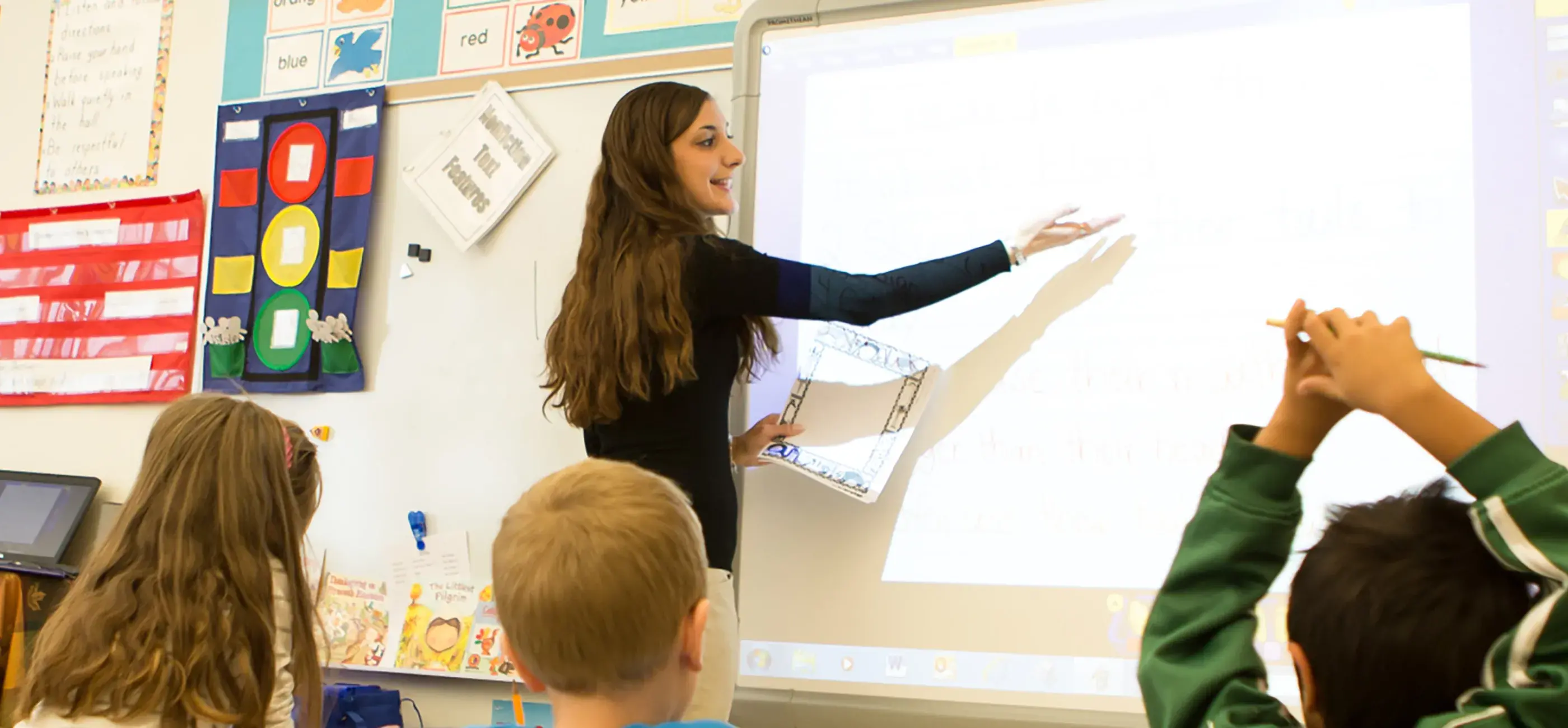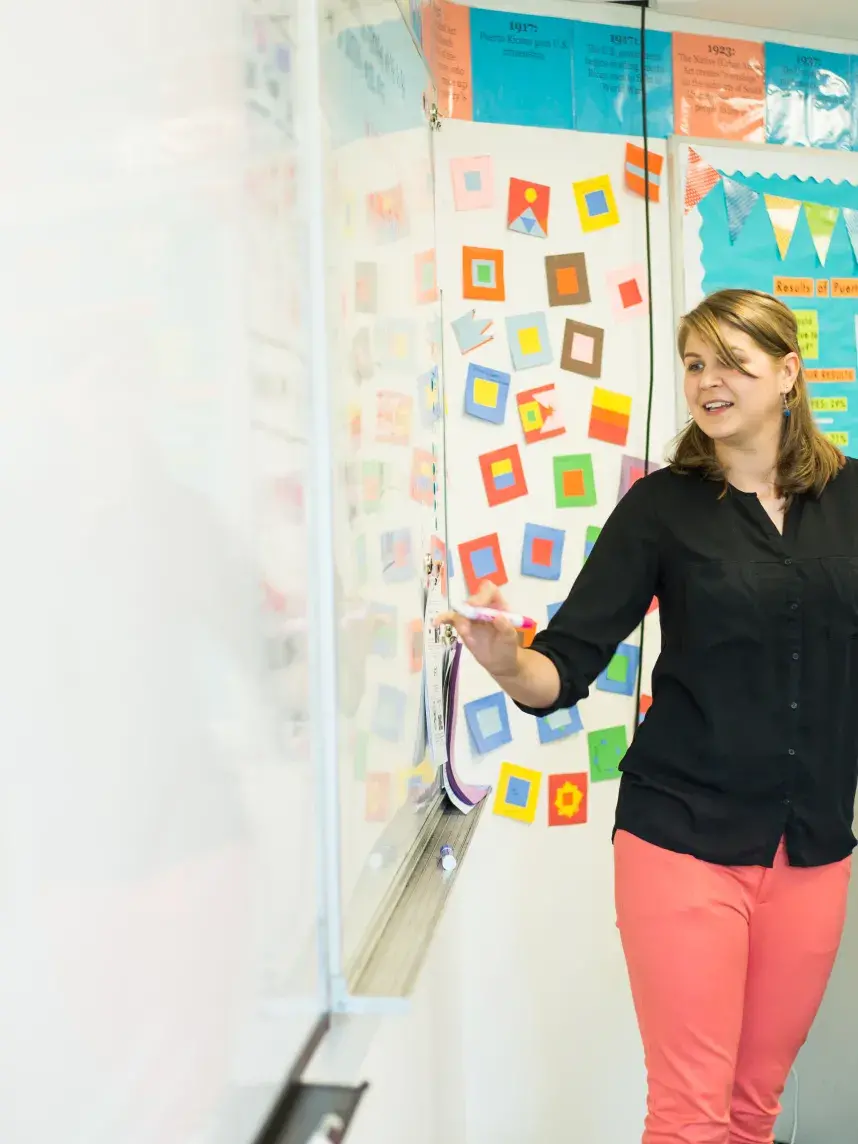Lesley’s master’s programs combine low residency with high touch to create a unique learning experience. At Lesley, you spend less time on campus, which means you can pursue independent work on your own schedule. But you’ll also study as part of a cohort of peers who are learning and discovering together, alongside our seasoned faculty practitioners.

Master's Programs
Master’s in Education At-a-Glance
Become a licensed educator
- 36-credit program
- 15 credits of core courses for all educators
- 15 credits of licensure/content area-specific courses
- 6 credits of practicum & seminar
- Received a M.Ed. and Licensure
Enrich your teaching career (Non-licensure)
- 30-credit program
- 15 credits of core courses for all educators
- 15 credits of licensure /content area-specific courses
- Receive a M.Ed.
Please note: Only M.Ed. in Language and Literacy currently available. Fuller program options to come. Please reach out to Graduate Admissions for more information.
For all candidates
Available in Early Childhood Education, Elementary, Middle/High School, Inclusive Special Education (Moderate and Severe Disabilities), Multilingual learners leading to ESL, Teacher of the Visual Arts, Specialist Teacher of Reading (2nd license).
Part-time or full-time residency models with a Scholar Partner School or a Teacher Residency in your own school setting.
Finish in a year or go at your own pace.
Ability to take 12 graduate credits while completing bachelor's degree that can be applied towards completion of the M.Ed. in Multilingual Learners, Specialist Teacher of Reading, or Special Education.

Take Your Education to the Next Level
Lesley University’s master's programs in Education empower students to define their niche, sharpen their skills, and become the creative, resilient, best-in-class teachers that today’s education systems need. Ideal for seasoned educators and those entering the teaching profession for the first time, programs combine low residency, immersive cohort learning, deep faculty mentorship, and real-world classroom experience through our Scholar Partner Program. As a Lesley student, you’ll work alongside peers to collaborate across six specializations, just as you would in real-world education settings. You’ll explore various career paths and learn how you can make an impact in today’s education ecosystem.
Low Residency Meets Powerful Community
Deep Practical Experience
Another Lesley strength is our commitment to getting students into the classroom early and often. From their very first semester, students across our master’s programs begin working in field placements that are guaranteed upon acceptance through our Scholar Partner Program and Teacher Residency Program. This practical experience will help you connect what you learn in your coursework to real world teaching inside a school setting. It’s early and intensive time in the classroom that makes you a more seasoned, resilient, and better prepared educator.